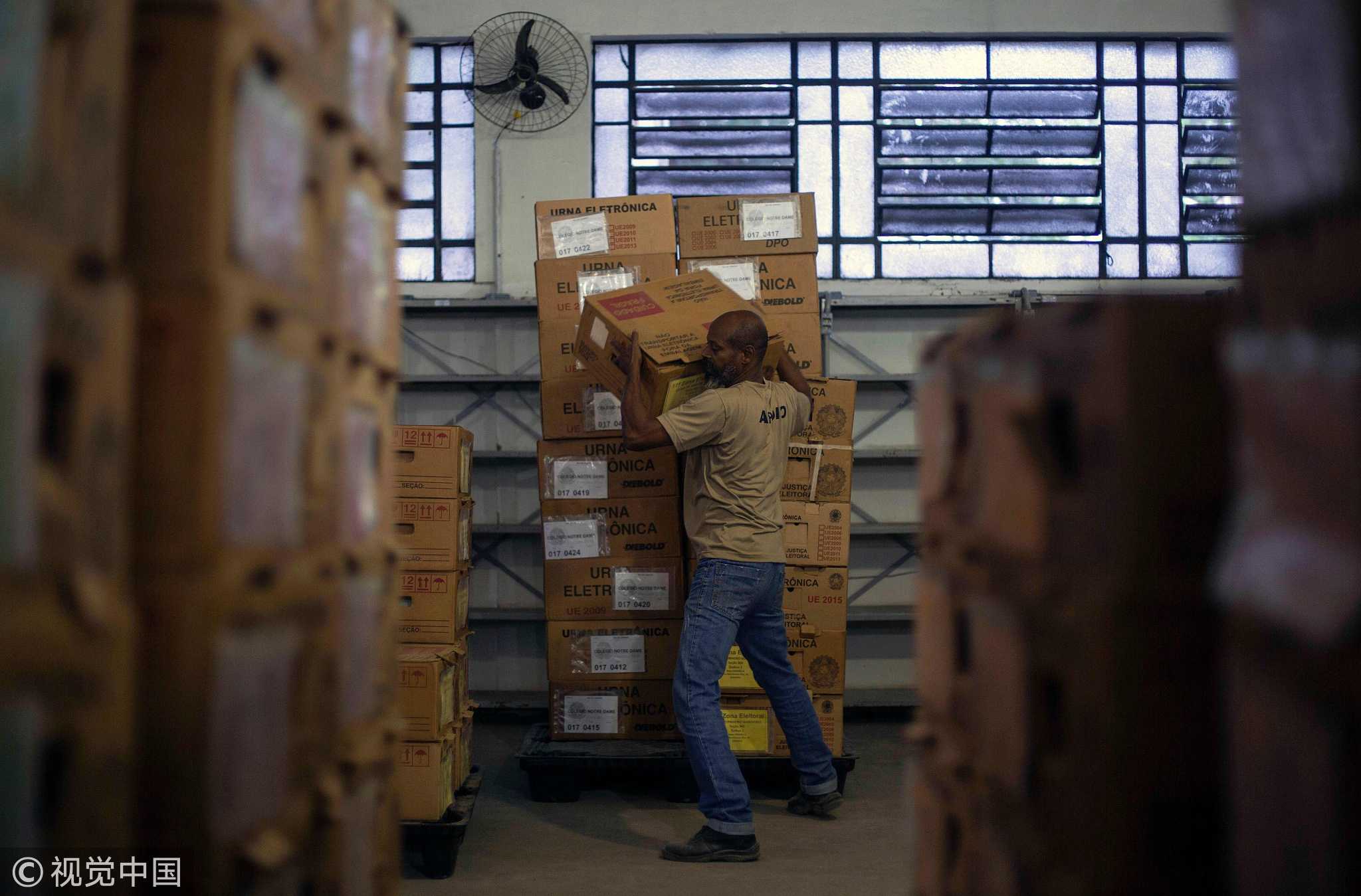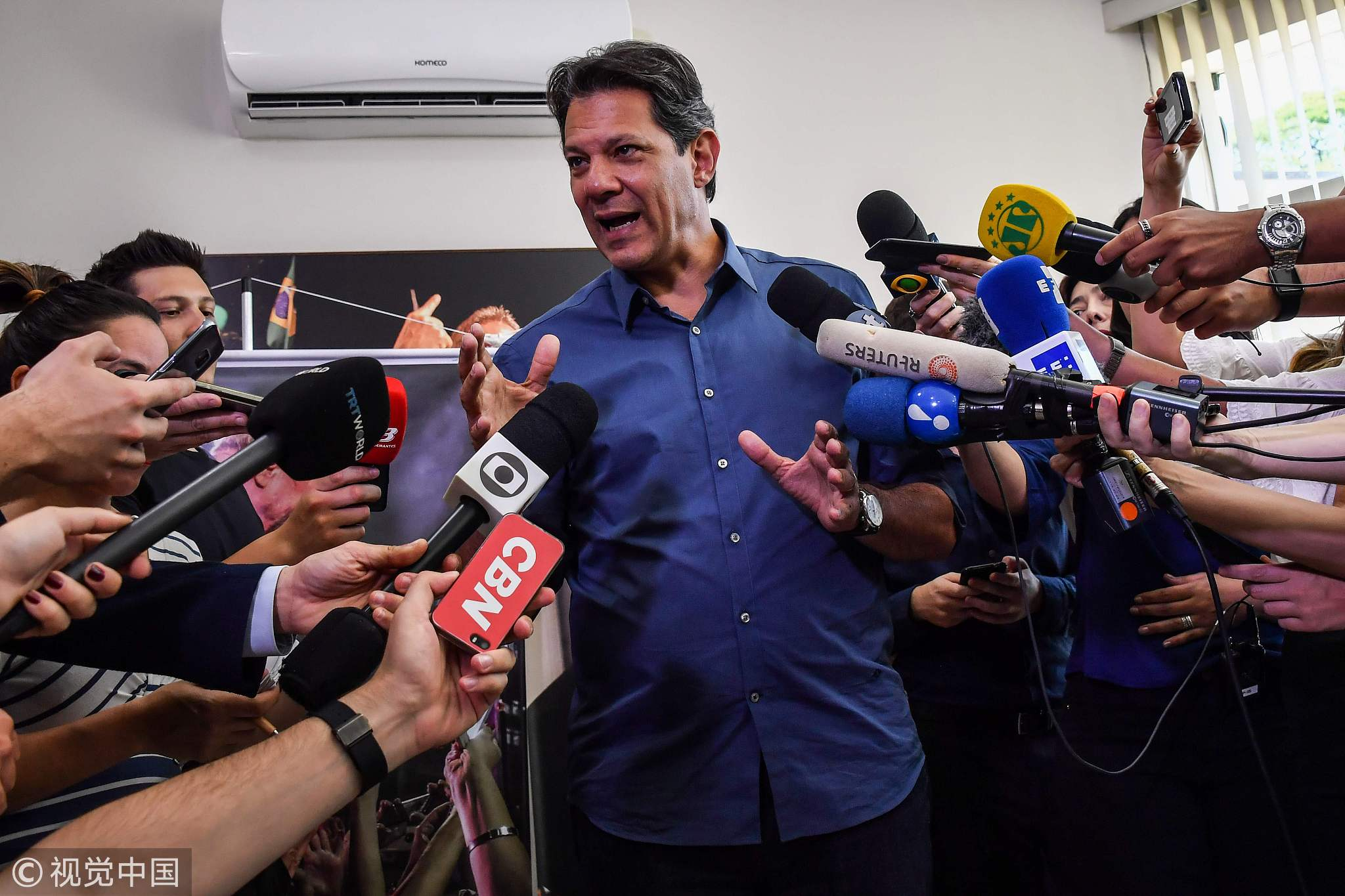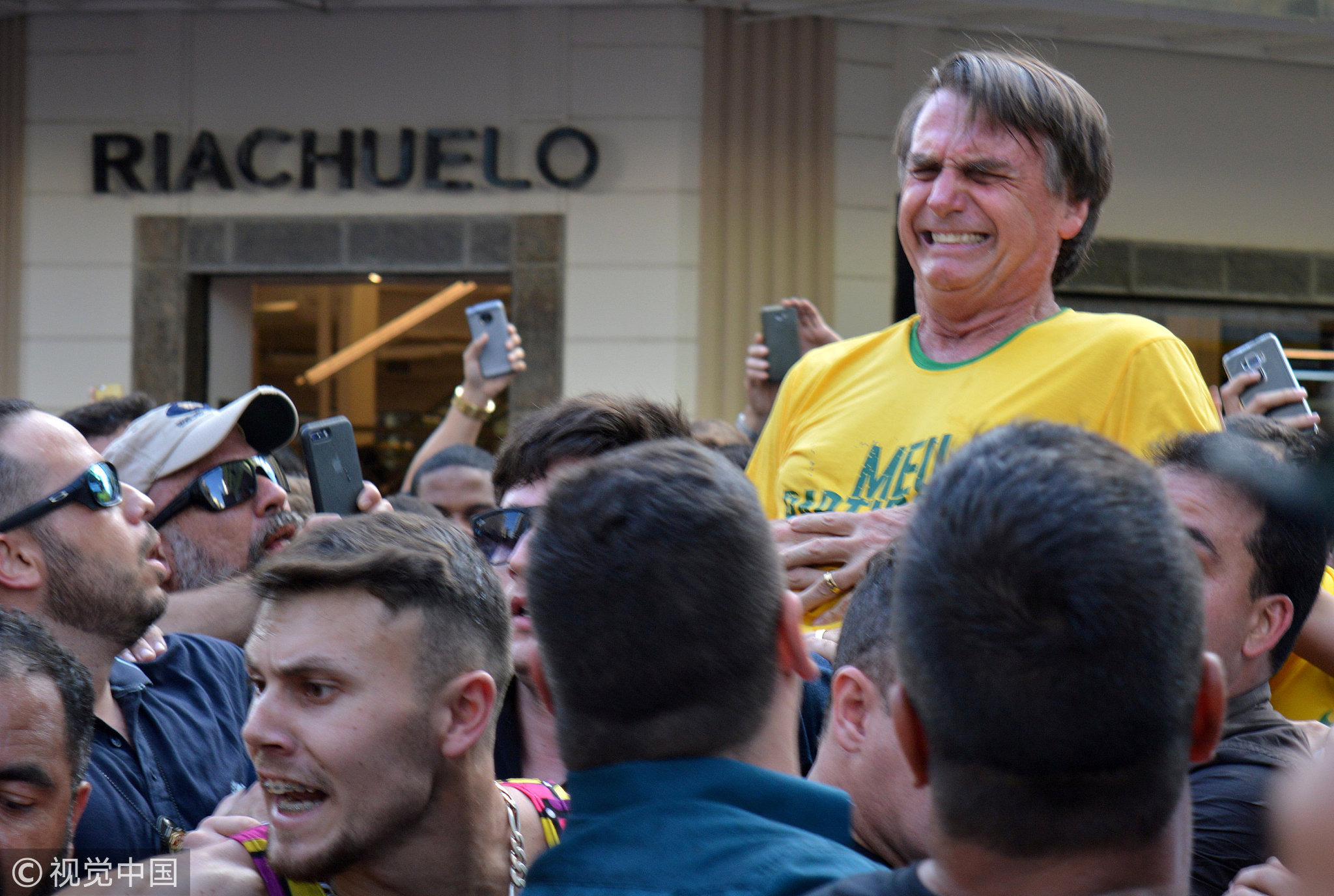Editor's note:Jiang Shixue is a professor at the Institute of Global Studies at Shanghai University. The article reflects the author's opinion, and not necessarily the views of CGTN.
Brazilian voters will go to the polls on October 7 to choose the country's next president.
In every country, each presidential election is an interesting political drama to watch from both the inside and the outside. But the Brazilian drama this time seems to be more eye-catching, focusing on two candidates.
In the early stage of the presidential campaign, former president Luiz Inacio Lula da Silva, who governed Brazil between 2003 and 2010, was thrown into jail for corruption and money laundering charges. Then he was barred from running in the campaign by a legal decision of the country's Electoral Court. He is now serving a 12-year sentence, but his supporters call the court's ruling as a political act to stop him from a third presidential term.

A Brazilian Electoral Court employee loads electronic ballots for their dispatch during preparations on the eve of the general election, Rio de Janeiro, Brazil, October 6, 2018. /VCG Photo.
The Workers' Party then selected Fernando Haddad as a backup to Lula. Surprisingly, Haddad soon became one of the leading contenders, campaigning actively across the nation to "carry Lula's voice."
A 55-year-old economist, lawyer and university professor, Haddad served as education minister in the administrations of Lula and Dilma Rousseff. In 2012, he won election as mayor of Sao Paulo, Brazil's largest city. He reaped some reputation of competence in improving transportation infrastructure in Sao Paulo.
Another "spectacular" candidate is Rio de Janeiro congressman Jair Bolsonaro. Dubbed "Brazil's Trump" in the media, this far-right politician has performed quite well in the campaign by seizing on the discontent, despair, disappointment and even anger of the Brazilian voters over the nation's traditional political establishment.
But many people do not like him as he has made many racist, homophobic, and xenophobic remarks before becoming a presidential candidate.
According to an article published in The Economist, Bolsonaro has a long history of being grossly offensive. He said he would prefer a dead son to a gay one and he suggested that people who live in settlements founded by escaped slaves are fat and lazy. The commentary even calls him "a menace to Brazil and to Latin America."

Brazilian presidential candidate for the Workers Party Fernando Haddad speaks during a press conference at the Lula Institute, in Sao Paulo, Brazil, October 3, 2018. /VCG Photo.
On September 6, one incident added to the "spectacularity" of Bolsonaro. He was stabbed while campaigning and interacting with supporters in Minas Gerais. The attacker claimed that he was "ordered by God to carry out the attack."
No one can predict whether the first round vote can produce a winner or not. According to the Brazilian constitution, if no candidate can get more than 50 percent of the overall vote, the two candidates with the most votes must go to the second round on October 28, 2018.
Whoever wins the presidential election this time would be faced with many daunting challenges such as a sluggish economy, rising crimes and corruption. No less pessimistic is the fact that the society is bitterly and highly polarized following the controversial impeachment of Dilma Rousseff and the jailing of Lula.
Many people in Brazil say that "God is Brazilian." Will the new president be a Brazilian God to tackle all the headaches? It's anyone's guess.

Brazilian presidential candidate Jair Bolsonaro reacts after being stabbed during a rally in Juiz de Fora, Minas Gerais state, Brazil, September 6, 2018. /VCG Photo.
Brazil is the largest country in Latin America. Therefore, the result of its presidential election will exert grave influence on the whole continent's political future.
If Bolsonaro wins Brazil's highest office, the Latin American leftists will suffer one more setback. Needless to say, if Haddad can claim victory either in the first or second round, the tendency towards disarray for the Latin American left-wing parties might be stopped.
What will happen to the China-Brazil relationship has never been a central topic in Brazil's election, but candidates would express their views on certain international issues or some foreign countries.
Even though Bolsonaro had worried about the Chinese investments in Brazil, he softened his tone later, saying “We will continue being a partner of China.” However, the future relationship between China and Brazil might still depend on the final election results and the new president's policies.
(Cover: A supporter waves a Brazilian national flag as federal deputy Jair Bolsonaro launches his campaign for the presidency of Brazil in Rio de Janeiro, Brazil, July 22, 2018. /VCG Photo. )
(If you want to contribute and have specific expertise, please contact us at opinions@cgtn.com.)
https://news.cgtn.com/news/3d3d514e336b6a4e7a457a6333566d54/share_p.html?from=timeline
